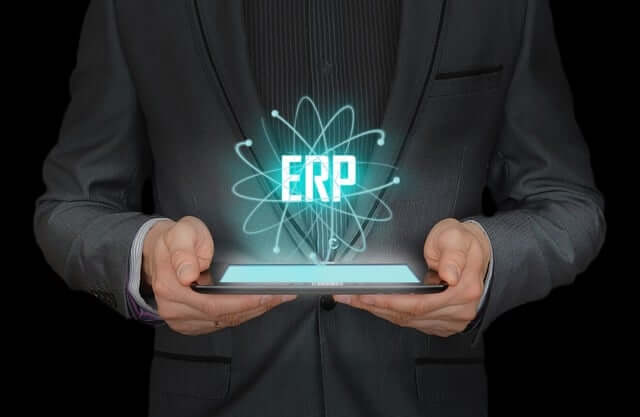Have you ever wondered how some businesses effortlessly manage their operations, boost productivity, and achieve remarkable growth? The secret lies in their smart utilization of technology, specifically Enterprise Resource Planning (ERP) software. In this fast-paced digital era, where efficiency and streamlined processes are paramount, implementing ERP software has emerged as a game-changer for businesses across industries.
Think of ERP software for wholesalers as a powerful ally that integrates various aspects of your business, from inventory management to financials, human resources to customer relationship management, and everything in between.
It’s a centralized system that acts as the nerve center, connecting all your departments and providing real-time insights to help you make well-informed decisions. But what makes ERP software so crucial, you may ask?
In this article, we’ll dive deep into the world of ERP software, exploring its benefits and how it can revolutionize your business operations. Whether you’re a small-scale start-up or an established enterprise, you will want to read this to the end to see how implementing ERP software could help unleash the full potential of your business.
Five Key Benefits of Implementing ERP Software for Your Business
#1: Improved Efficiency and Productivity
One of the most significant advantages of ERP software is improving efficiency and productivity. ERP systems help employees focus on more critical, strategic tasks by automating routine tasks and providing real-time data.
Imagine having a single platform that handles everything from order processing to shipment tracking – that’s ERP for you! With streamlined processes and fewer errors, your team can work more effectively, leading to increased revenue and growth.
#2: Enhanced Collaboration and Communication
When departments work in silos, it can be challenging to maintain clear communication and collaboration. ERP software breaks down these barriers by providing a centralized platform for all team members to access and share information. This transparency means everyone is on the same page, reducing misunderstandings and promoting a more collaborative work environment.
When this type of structure is in place in your business, you can expect to make better, faster decisions and easily adapt to changes.
#3: Real-Time Access to Data and Analytics
In today’s fast-paced business world, having access to accurate, up-to-date information is crucial for success. And if you have been struggling with having the right data to make impactful decisions in your business, then you might want to consider implementing ERP software.
ERP systems offer real-time data and analytics, empowering businesses to make informed decisions based on facts, not guesswork. This data-driven approach can help you identify trends, spot opportunities, and address potential issues before they escalate. With the power of ERP analytics, your business can stay ahead of the curve and maintain a competitive edge.
#4: Scalability and Flexibility
As your business grows, so do your needs. ERP systems are designed with scalability in mind, meaning they can adapt to the changing demands of your business. Whether adding new product lines, entering new markets, or expanding your workforce, ERP software can easily accommodate these changes.
One such example is Sales Order, which states on its website: “One system to reduce sales effort, manage inventory accuracy, maximize order throughput and deliver the best possible business intelligence.”
Many ERP solutions offer modular designs, allowing you to implement specific modules based on your current requirements and add more as your business evolves. This flexibility ensures that your ERP system remains a valuable asset, supporting your growth every step of the way.
#5: Cost Savings and Better Financial Management
Lastly, implementing ERP software can lead to significant cost savings. Because of its potential to help streamline operations, reduce errors, and improve overall efficiency, it can help you cut down on expenses and boost your bottom line.
Additionally, ERP systems provide robust financial management tools, allowing you to monitor expenses, track revenue, and generate accurate financial reports. With better financial oversight, your business can make smarter budgeting decisions and optimize resource allocation.
Final Note
Implementing ERP software for your business offers many benefits, from improved efficiency and productivity to enhanced collaboration and communication. Not only does it help streamline processes in your warehouse, it can also help you have access to valuable real-time data that will help you make the best decisions for your business.
If you are really concerned about growing your business and helping it thrive in today’s dynamic marketplace, then you should consider implementing ERP software for the business.
















